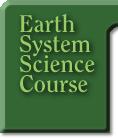Participation
Throughout this 16-week course, you will work individually
and in teams. Depending on the number of people enrolled,
teams will consist of four to six participants. You will be
expected to contribute to online discussion sessions "asynchronously."
That is, you will be able to log on to the Internet and post
your thoughts to the virtual classroom spaces as your individual
schedules permit but within specific activity deadlines. Team
discussions will revolve around Earth systems science, Problem-Based
Learning, and teaching practices. The course will be moderated
by a facilitator. Additional support from an Earth scientist
will be provided as the course progresses.
After
the first three weeks, this course is structured in four,
three-week cycles. You will study a new scenario (Week 4--coral
reefs, Week 7--tropical forests, Week 10--ozone, Week 13--global
change) in each of the four cycles. As a participant in this
course, you will play a different role during each week of
the cycle.
|
Week
A:
Teacher as Problem Solver
Weeks
4, 7, 10, 13
|
Individual:
Identify what you believe to be true and the reasons
for why you have those beliefs regarding the event.
Team:
Build ESS knowledge as a team about the event described
in the scenario, and develop a problem statement.
|
|
Week
B:
Teacher as Model Builder
Weeks
5, 8, 11, 14
|
Team:
Using your team's original or revised problem statement,
build ESS arguments which include the ESS relationship
statements and evidence that support your conclusions
(recommendations or solutions).
|
|
Week
C:
Teacher as Designer
Weeks
6, 9, 12, 15
|
Individual:
Using what you have learned about PBL lessons from the
student perspective, you will design a PBL lesson for
your students on your own. Your PBL lesson should be
focused on an Earth Systems Science event. Post it for
feedback from your critical friend. Then, act as a critical
friend to one of your teammate's by assessing his or
her PBL lesson and offer suggestions for improvement.
|
At the
end of the three-week cycle, you will be required to post
in your journal your reflections on your learning (see the
Reflective Learner Activity and
Rubric) You are welcome to post reflections to your
journal at any other time throughout the course. However,
you will be assessed only on those entries posted at the end
of the cycle. In the last week of the course, you will complete
an individual final project (see the Final
Project Activity and Rubric.) All assignments are
expected to be submitted by the posted deadlines. Instructions
for the activities and rubrics, as well as the deadlines,
can be accessed from Outline Weeks 4-16.
[
Welcome ] [Earth's
Spheres] [ Earth System Science
] [ PBL Model ] [ Use
of Technology ] [ Science as Inquiry
] [ Participation ] [ Assessment Overview
] [ Course Sections ]
[ Home ] Intro [ Guide
] [ Outline ] [ Classroom
]
HTML
code by Chris Kreger
Maintained by ESSC Team
Last updated July 13, 2000
Privacy
Statement and Copyright©
1997-2000 by Wheeling Jesuit University/NASA Classroom of the Future™. All
rights reserved.
|



